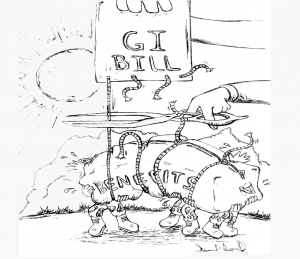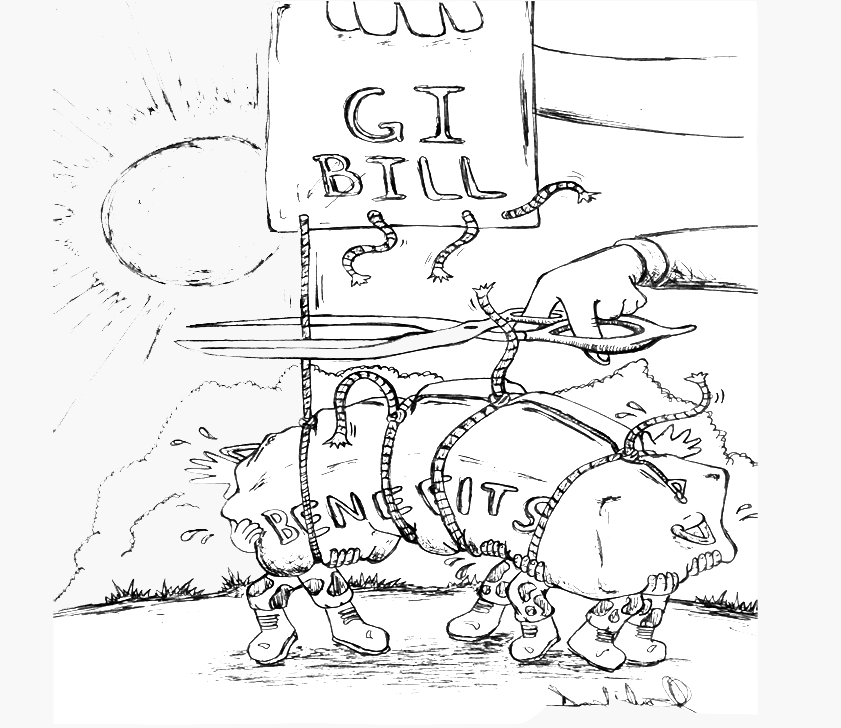The federal budget is at a tipping point, but getting cheap on veteran benefits is not the answer.
On Aug. 1, amendments passed by Congress to the Post 9-11 GI Bill will take effect, and vets will be among the first to feel the repercussions of the budget crunch.
The Post 9-11 GI Bill provides veterans with money for tuition and housing on the stipulation that one must serve 36 months of military service after 9-11 to receive full assistance.
 The changes to this are not drastic, but they are key. The biggest cut comes in the removal of payment in the down periods between semesters. This means vets won’t see a check for the monthlong period after the fall semester, a hit that doesn’t come during the break but shows up in a smaller check right after the holidays.
The changes to this are not drastic, but they are key. The biggest cut comes in the removal of payment in the down periods between semesters. This means vets won’t see a check for the monthlong period after the fall semester, a hit that doesn’t come during the break but shows up in a smaller check right after the holidays.
“If I have to sell my house, I’ll sell my house,” said Marine Corps veteran and NE student Mitchell Jones on the cuts being made to his housing assistance.
The new law also puts a cap on the amount vets can receive to pay tuition for private schools at $17,500. That’s barely enough to cover one semester at TCU, which estimates a yearly tuition of $32,400.
Congress made a promise to the armed forces recognizing the sacrifice they make to protect our rights — a promise made that soldiers who sacrifice both their youth and time with family will be provided a quality education.
Now, you can add an asterisk next to quality that states “only up to $17,500.”
The last decade has been one of the most turbulent of this country’s long history. Those men and women are the tip of the spear. They deal with a reality many of us only catch clips of on CNN.
Why are they also the first to deal with this crisis? The veterans have sacrificed enough. This is no time to nickel-and-dime them.
The budget crisis is a reality. Cuts have to be made. No one wants to see any benefits go.
But a line has to be drawn. The promises the recruiters made should not be sidestepped now. Education should not be the first place to go to whenever it’s time to save money.
The New York Times estimated cost spent on the Iraq war at $1.2 trillion and that was in 2007. If the government can justify that amount of spending to send these troops to war, then it should be able to honor promises to send these troops to a quality education of their choice.
The sacred cow of our budget, as everyone knows, is national defense. Let’s not forget education is key to our national defense too.
Without an educated and prosperous civil base, there is nothing to defend.

